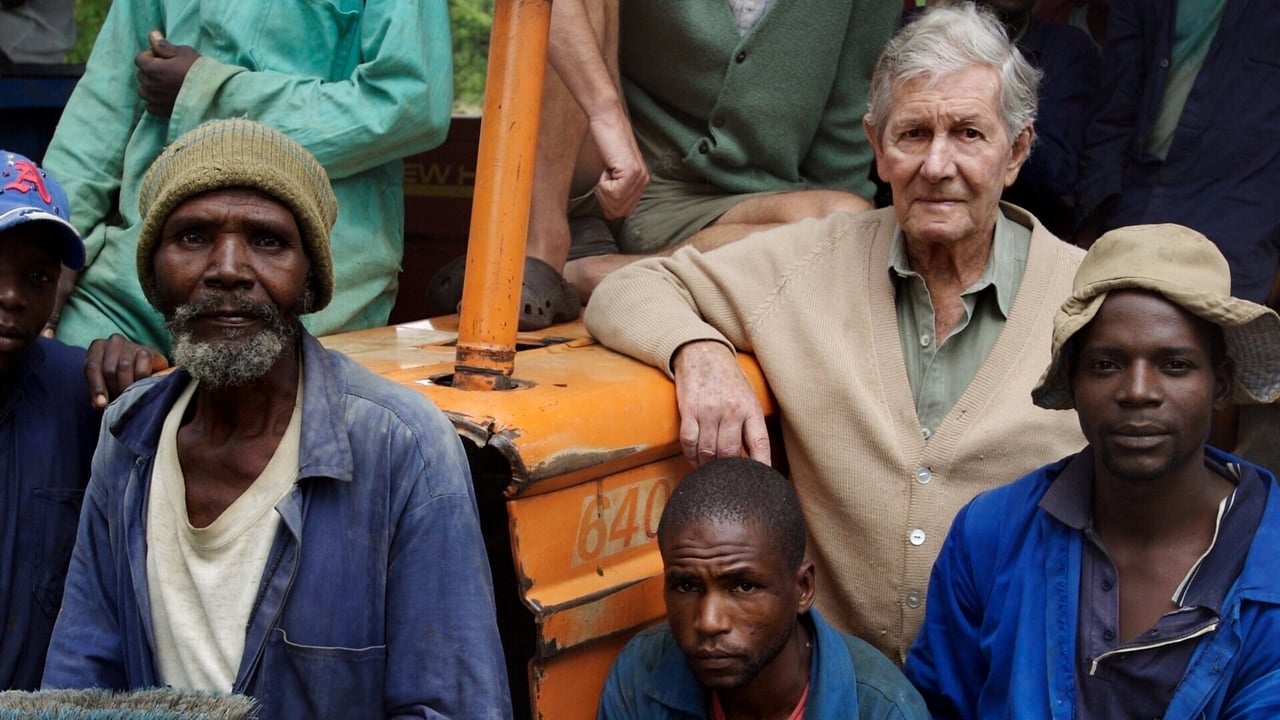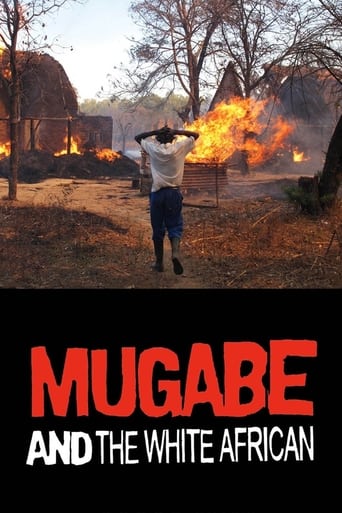

This documentary is a moving, emotionally charged film focused on one elderly white farmer and his family as they try to hold on to their farm in Zimbabwe and validate the justice of their cause before the SADC International Court, a kind of International Court of Justice. As much of the film depicts the family's preparation for their court appearance and the associated consultation with their lawyers, the jurisdiction of the court in this matter and what they hoped to achieve from the court's decision was not clear to me. The Assistant Attorney General of Zimbabwe says in the film that this court has no weight on matters within Zimbabwe, while the advocates for Mike Campbell, the white farmer, intend to emphasize the racism of Zimbabwe's "land-reform" by showing that only white farmers are being expropriated.But this film's strength is not on the legal issues, or the political context, but on the courage and strength of character of Campbell, his son-in-law (Ben Freeth) and their wives as they face political and physical intimidation. We see the Zimbabwe government exerting increasing pressure, most ominously through its thugs who seem to enter the farm at will to beat up its workers and tell Campbell and his family that "we don't want you here in Zimbabwe". Campbell does not back down under the intimidation but decides to highlight the justice of his cause by taking his case to the SADC. It's curious to me why the government through its marauders didn't just go in and physically dispossess this family of their farm, killing a few on the way, mostly black African workers, as they did with most of the white-owned farms previously dispossessed. Presumably, Campbell's claim to his farm was more difficult for Mugabe and his minions to wave away; he apparently bought it from another white farmer during Ian Smith's white colonial government a few years before Zimbabwe's independence.Some of these reviews have indicated that no historical context is provided in this film, particularly how white farms were acquired during the colonial period. Well, the film was never meant to be a comprehensive historical review of land acquisition, usage and disposition in Southern Rhodesia / Zimbabwe complete with exposés of Cecil Rhodes and the like. It's a very personal microcosm of the recent "land-reform" in Zimbabwe where President Mugabe plays the "racial card" to dispossess white farmers and transfer their farms to his political supporters somewhat akin to the privatization of Soviet-era state assets to politically-connected insiders. Unfortunately, these were not accomplished farmers, and Zimbabwe's food exports have dropped significantly since the dispossessions. Indeed, it's hard to imagine anyone in a democratic country retaining power whose stewardship of his nation's economy has resulted in 80% unemployment and 100 billion (?) % inflation without resort to violent intimidation as Mugabe has done. You can see the look of fear in the faces of the black farm workers as Mugabe's thugs intimidate them and their livelihoods are threatened. I wished the film focused a bit more on these workers who have much to lose from this "land-reform"; perhaps they were reluctant to talk for fear of what might happen to their families.In summary, this is a powerful drama that needs to be told; and I'll conclude with two comments: (1) if you live in a nation that goes by the rule of law,and not the rule of men, be thankful, and (2) imagine the form of land-reform that a Nelson Mandela might have initiated in Zimbabwe, a more just, evolutionary approach with fair compensation and allocation of the land to experienced farm workers of all political stripes who don't necessarily have to be Mugabe's "bush veterans". Just compare the Mandela of "Invictus" and the Truth and Reconciliation Commission to the Mugabe regime and his election-time rhetoric:"the whites are gathering at our borders and getting ready to take your land back" (reported in AP).
... View MoreTo be fair I shouldn t be reviewing it because I turned it off after the first fifteen minutes. At the first shots of sad, wide eyed African children. I knew what I was in for and din't fancy the ride. These children wernet given a voice, nor were their parents. The film never questions the assumption that the land belongs by rights to the white settlers. The tone and language of the white family is classic colonial era: paternalistic towards 'our' workers. Resting on the (unspoken) assumption that Africans are irrational, child like and incapable of managing things themselves. Instead of rigorous analysis of a complex series of events, giving voice to the different interests and points of view, the film relies upon emotional manipulation of the audience. The situation in Zimbabwe is the culmination of years of interference in the continent on the part of Europeans. Shame this film couldn't offer more insight. It says much about the media and visual illiteracy of our culture along with Britain's unwillingness to confront the legacy of its colonial past that this film has been so feted to the extent of winning a BAFTA award. Still, people will believe the truths they want to believe.
... View MoreThis is no doubt one of the most moving documentaries I have seen in a long time. The story of a family who decided not to bow to pressure, not to run away, not to give up in the face of the most horrendous state brutality speaks for itself and I find some of the criticisms voiced in other reviews hard to stomach. It is not Mugabe and his oppressive regime that need to be explained, it is the fact that his system is allowed to continue without much international challenge that is abhorrent. The courage of Michael and Ben in making this documentary, in continuing with their case and in showing the real face of Mugabe and his small but brutal elite is worth noting and remembering.
... View MoreI can't believe the high level of insincerity in this documentary. whole documentaries was from the view point of the white community.view point of black peoples were never concerned or given any space in this documentary of 90 minutes.There was never mentioned the whole situation before the independence of Zimbabwe. The suppression of black people under colonial rule .And the facts like white peoples just make 1% of population but controlled 75% of land. black people were shown as angry for no reason and are being just racist.In many parts of documentary author gives the reason that we have been targeted cause we are white(implying that black people just angry cause they are racist). At about 33 minutes , there was a dialog between black person and white person:black person: ....we don't want to have anything with white people.....white person: is that cause we are white?. (implying that black person is just racist and there is no valid for him to be angry)the correct question should have been "is that because we exploited you for years and own most of your land because of long history of colonial rule?".whole documentary was filled with animated emotions by various white characters showing how sad they are. while black people were shown as racist and violent.
... View More